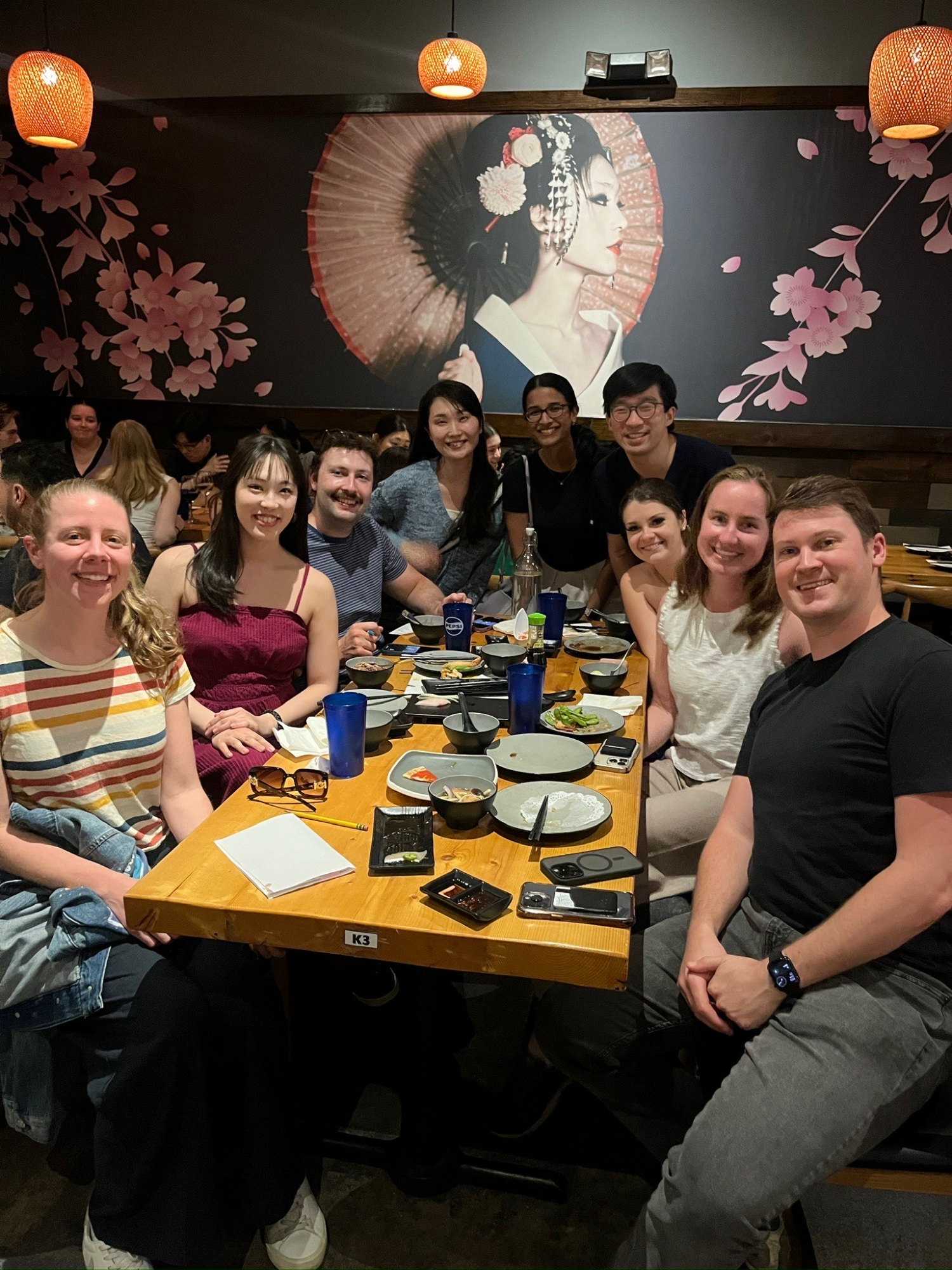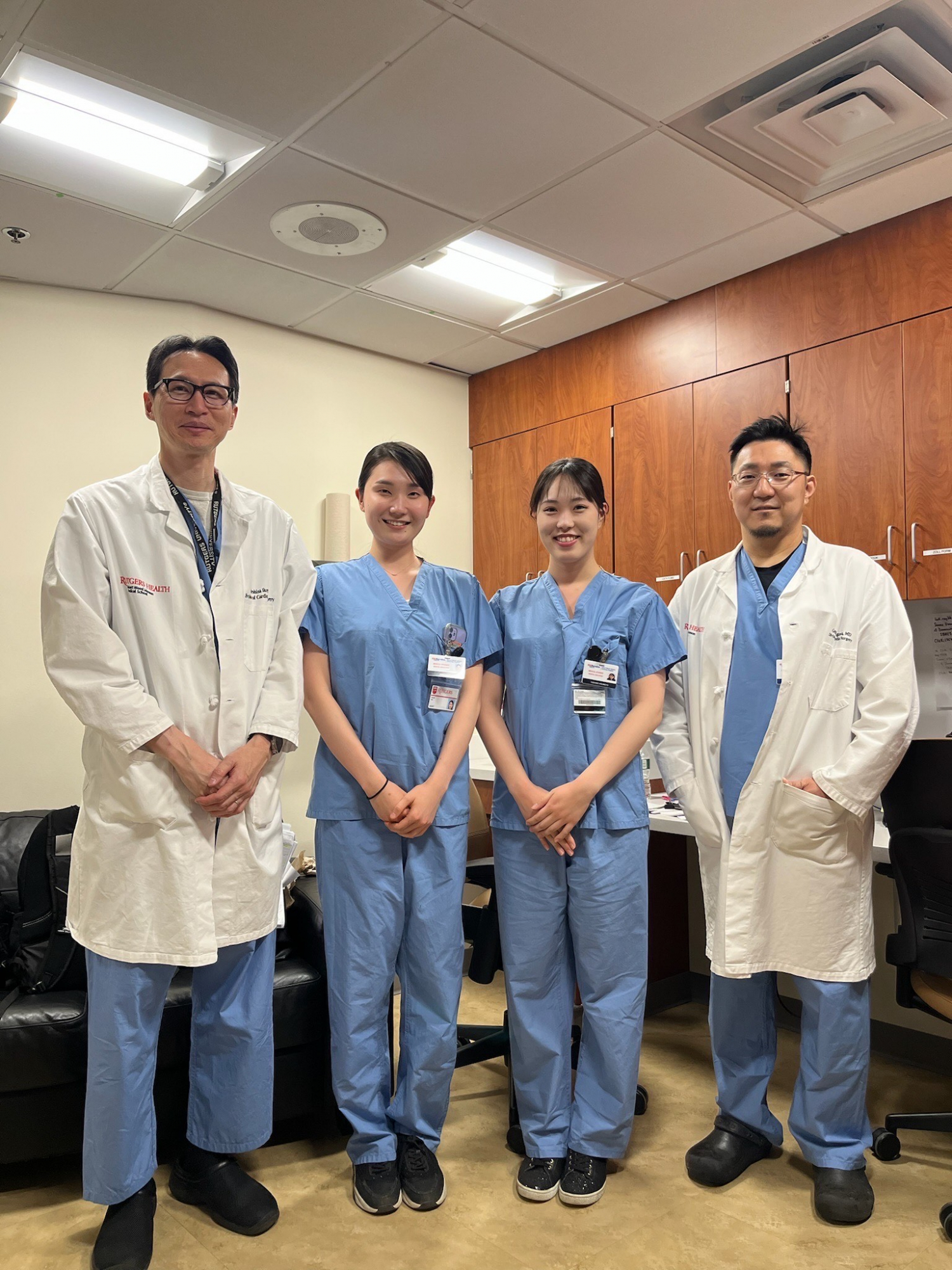International and Domestic exchange
Haruka Taka
After completing his internship at Rutgers University
This time, I have been given the opportunity to do my clinical internship at Robert Wood Johnson Medical School in New Jersey, USA for four weeks from April 7th to May 2nd, 2025.
When I first entered School of Medicine, I couldn't speak any English and thought studying abroad was something that had nothing to do with me. However, when I was in my fourth year of university, I happened to become friends with exchange students from the United States and Germany who were visiting our university, which prompted me to start studying English in earnest. Gradually, I began to feel that I wanted to actually study medicine overseas, which led me to apply for this program.
By participating in this program, I was able to experience the differences between Japan and the United States in many ways, including not only the medical systems in Japan and the United States, but also the relationships between doctors and patients, the methods of medical education, etc. And above all, I was blessed with the opportunity to meet many people and take on new challenges, and I had a very fulfilling time.
During this internship, I rotated through Diabetes and Endocrinology in the first week, Family Medicine in the second week, and Cardiothoracic Surgery, Neurosurgery, and General Surgery in the third and fourth weeks.
During the first week of the Diabetes and Endocrinology Department, I visited the outpatient clinic under Dr. Wang and Dr. Amorosa, participated in a case conference via Zoom, and gave a presentation on a paper. What particularly impressed me about the outpatient clinic visit was the enthusiasm and high level of examination skills of the medical students. Basically, before the doctor examined the patient, the medical student interviewed the patient alone, and after briefly presenting the contents of the interview, he and the doctor began the examination and even discussed the treatment plan.
I was impressed by how the students always actively engaged with the patients, and how the patients trusted the students and spoke frankly about their medical history and lifestyles. In Japan, there are not many opportunities for students to actively interact with patients in the outpatient department, so I was very surprised.
We also had the opportunity to read a paper written by Dr. Wang, put it together in a PowerPoint presentation, and present it to the professor. Since we had never had such an experience in Japan, we didn't know what to focus on in the paper or how to summarize it, so we struggled a lot with Hiromoto-san, who was also participating in the internship, as we proceeded with the preparation. After the presentation, Dr. Wang gave us feedback on how to summarize and carefully taught us how to read the paper. And at the end, he said, "You don't have to do it perfectly. Just try it, and then ask questions about anything you don't understand," and those words were very encouraging. Through this experience, I realized once again the importance of not just accumulating knowledge, but also of having a positive attitude toward each task.
In the second week, I was able to learn about Family Medicine under Dr. Lin through visiting outpatient clinics, etc. The medical content is very wide, from chronic disease management to mental health and gynecological consultations, and I realized how important the role of Family Medicine is.
Dr. Lin is also the only doctor at Rutgers who practices acupuncture and moxibustion, and I was able to observe him using acupuncture on many occasions during his consultations to treat stiff shoulders, back pain, dysmenorrhea, and to alleviate the side effects of cancer patients. It was a very refreshing experience for me, as I had never seen a doctor practicing acupuncture in a hospital in Japan, and it also gave me an opportunity to think about the fusion of Eastern and Western medicine. I was also deeply impressed by Dr. Lin's attitude of building trusting relationships with patients by casually chatting with them during breaks in consultations.
We also had the opportunity to visit Promise Clinic, a clinic where students take the lead in providing free consultations and prescriptions for patients who, for various reasons, cannot get insurance and do not receive adequate medical care. At this clinic, students are responsible for most of the process, from taking the patient's medical history to physical examinations and formulating prescription plans. It was impressive to see senior students teaching junior students the techniques of examinations while treating patients, and students providing support as interpreters for patients who cannot speak English. In Japan, there are still few situations in which students take such a leading role in medical treatment, and this was a valuable experience that greatly influenced my way of learning and my attitude as a medical student.
On the other hand, I also felt that there was a problem with the American insurance system, with some people unable to receive the medical care they needed, and it made me think about the structure of the medical systems in both Japan and the United States.
In the third and fourth weeks, I rotated between cardiothoracic surgery, neurosurgery, and general surgery, observing surgeries and participating in conferences under Dr. Ikegami, Dr. Sunagawa, Dr. Kitakata, and Dr. Nagahama. There were many differences in the operating room, such as anesthesia management being carried out not only by anesthesiologists but also by nurses with specialized qualifications, anesthesiologists being in charge of multiple operating rooms, and there being many medical professionals in professions that do not exist in Japan. There are many professions other than doctors and nurses, and each role is clearly divided, so surgeons can concentrate on the operation, and I felt that it was a very rational and good system.
During these two weeks, I also had the opportunity to hear from Japanese doctors who are active as clinical physicians and researchers in the United States about their careers and life in the United States. This gave me the opportunity to deeply consider what kind of doctor I want to be and what I want to value in the medical field.
Furthermore, on the weekends, I had a great time going to New York and Princeton, and was invited out to dinner by Rutgers students.
Before I left for this study abroad experience, I was excited but also anxious about whether I would be able to make it. However, thanks to the warm support of countless people, including the wonderful teachers and students I met there, Enko, a Japanese person I met through Dr. Lin and who took care of me so much during my stay, Shama, the Indian woman with whom I lived, and others, it was a very fulfilling and irreplaceable experience.
Finally, I would like to express my sincere gratitude to Dr. Yoshimura, Dr. Ishido, Dr. Lin, and everyone at the International Center for giving me this precious opportunity, to my family and friends who supported me, and to Mr. Hiromoto who participated with me. Thank you very much.

